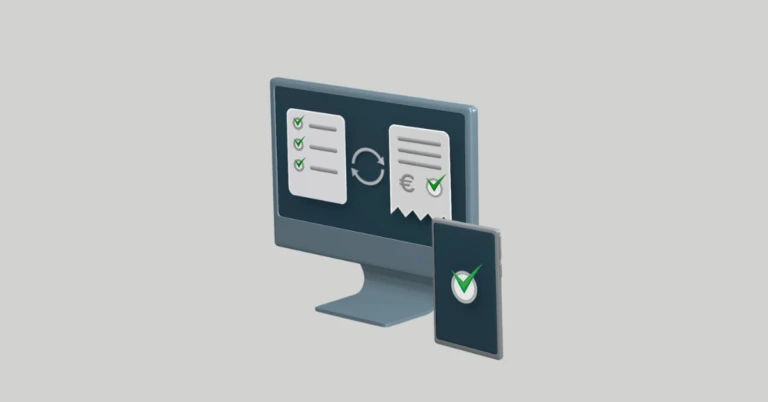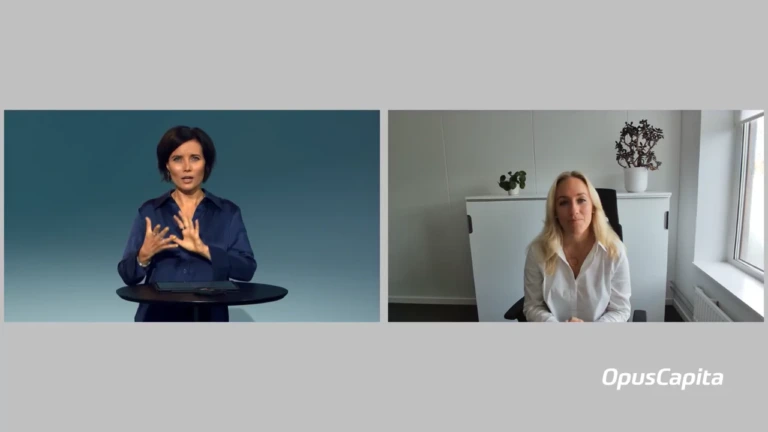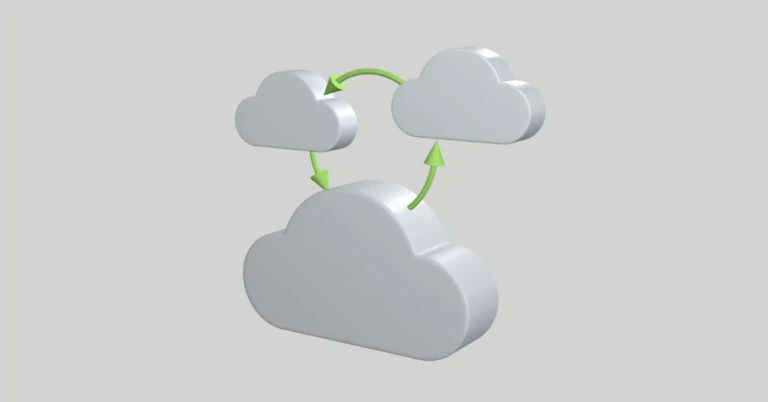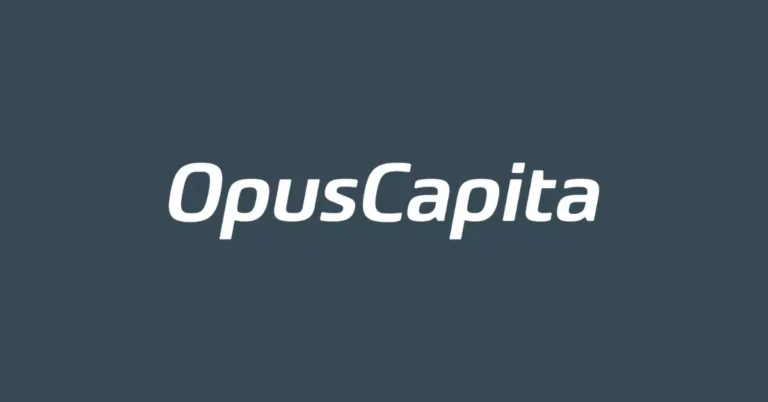Purchase-to-Pay
Send e-orders from your ERP and receive responses and e-invoices from suppliers to digitalize the entire Purchase-to-Pay process, enabling full matching automation
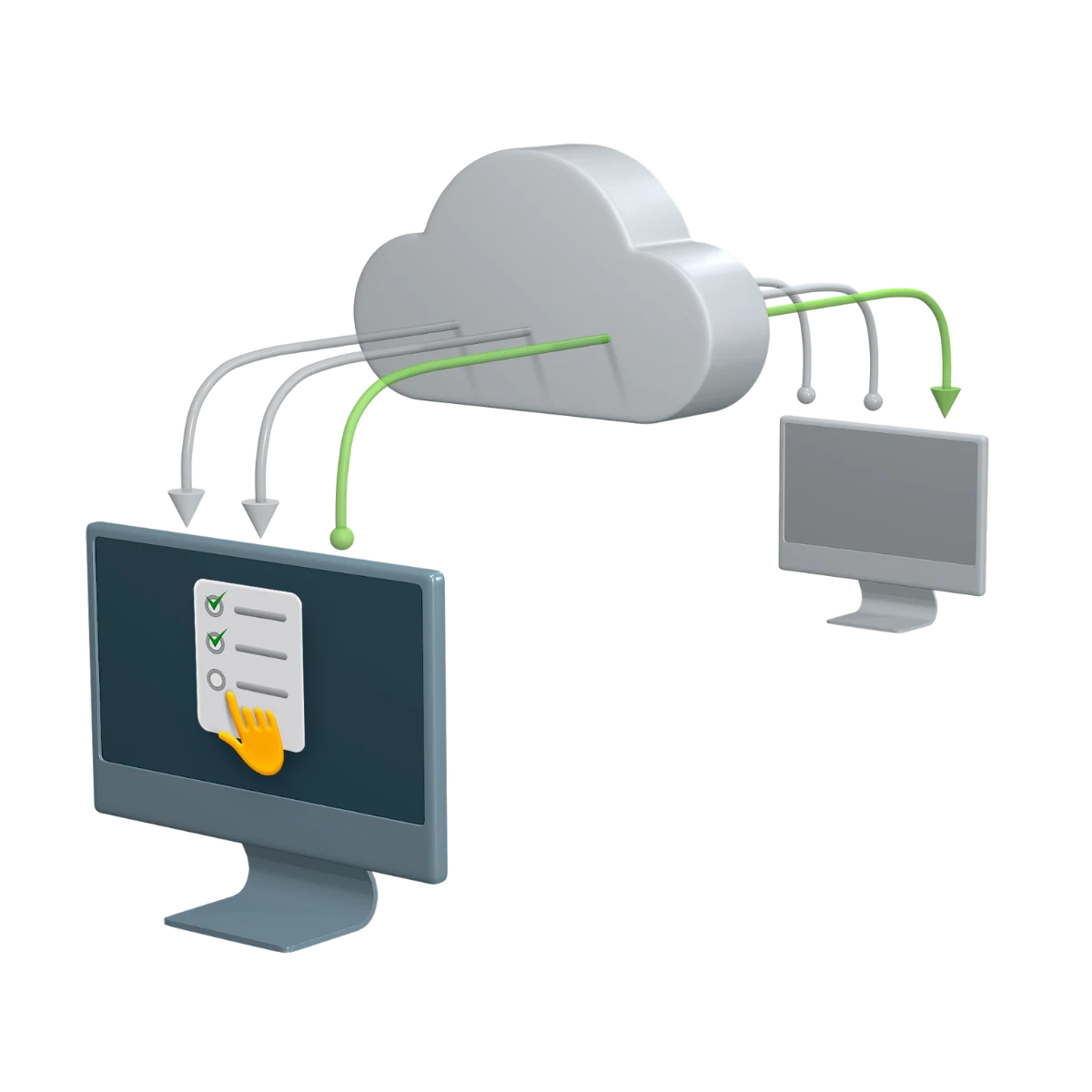
Hassle-free purchase-to-pay process
End-to-end flow from orders to invoices
One flow for all message types
Exchange supply chain documents in direct ERP integration, knowing exactly what & when was ordered, received and invoiced.
Enabled AP automation
Utilize the immersive potential for purchase-to-pay automation, taking your efficiency, accuracy and cost savings to a whole new level.
Frame agreement control
Realize your frame agreements digitally, gaining full control of your internal purchasing processes and minimizing wild spend.
Guaranteed compliance
Meet any requirements set by your internal process needs or legal compliance without worrying – we’ll handle it fully for you.
Whenever there’s an invoice, there’s usually also a purchase order to match it with. Stop the manual matching – digitalize & automate your full P2P process!

Peppol ordering at Peab
“We can ensure that ordered goods have been received and the invoice actually matches what was received.”
See how orders placed by thousands of Peab employees get sent out via Peppol, EDI, and even PDFs when needed.

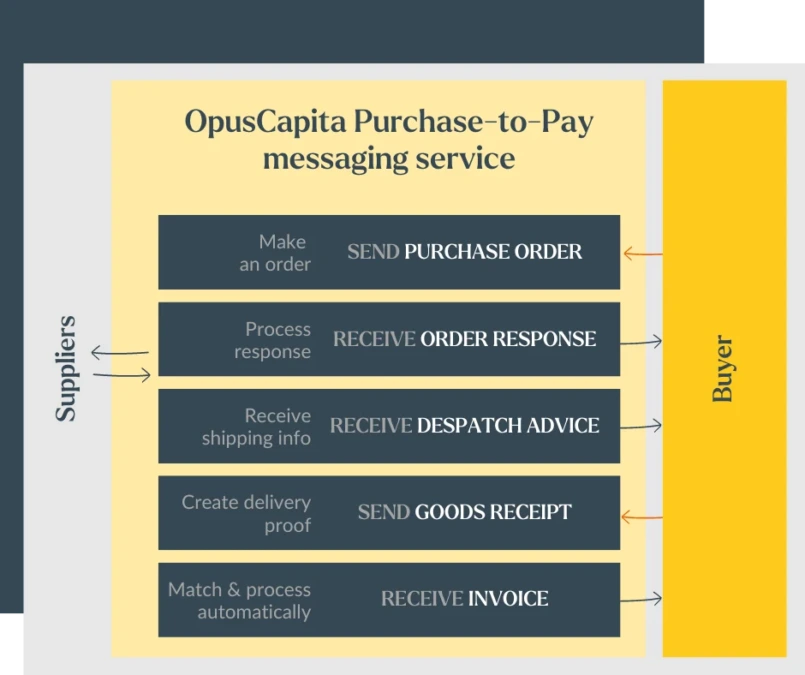
Hassle-free P2P process
P2P messaging continuously validates, transforms, and exchanges document data for you. It delivers orders from your ERP to your suppliers, and receives order responses, despatch advices, invoices, and more, back to your ERP and workflow system.

Go digital even with the smallest suppliers
Invite even your smallest suppliers without an order management system to accept your e-orders utilizing our free supplier tools.

Transparent P2P process
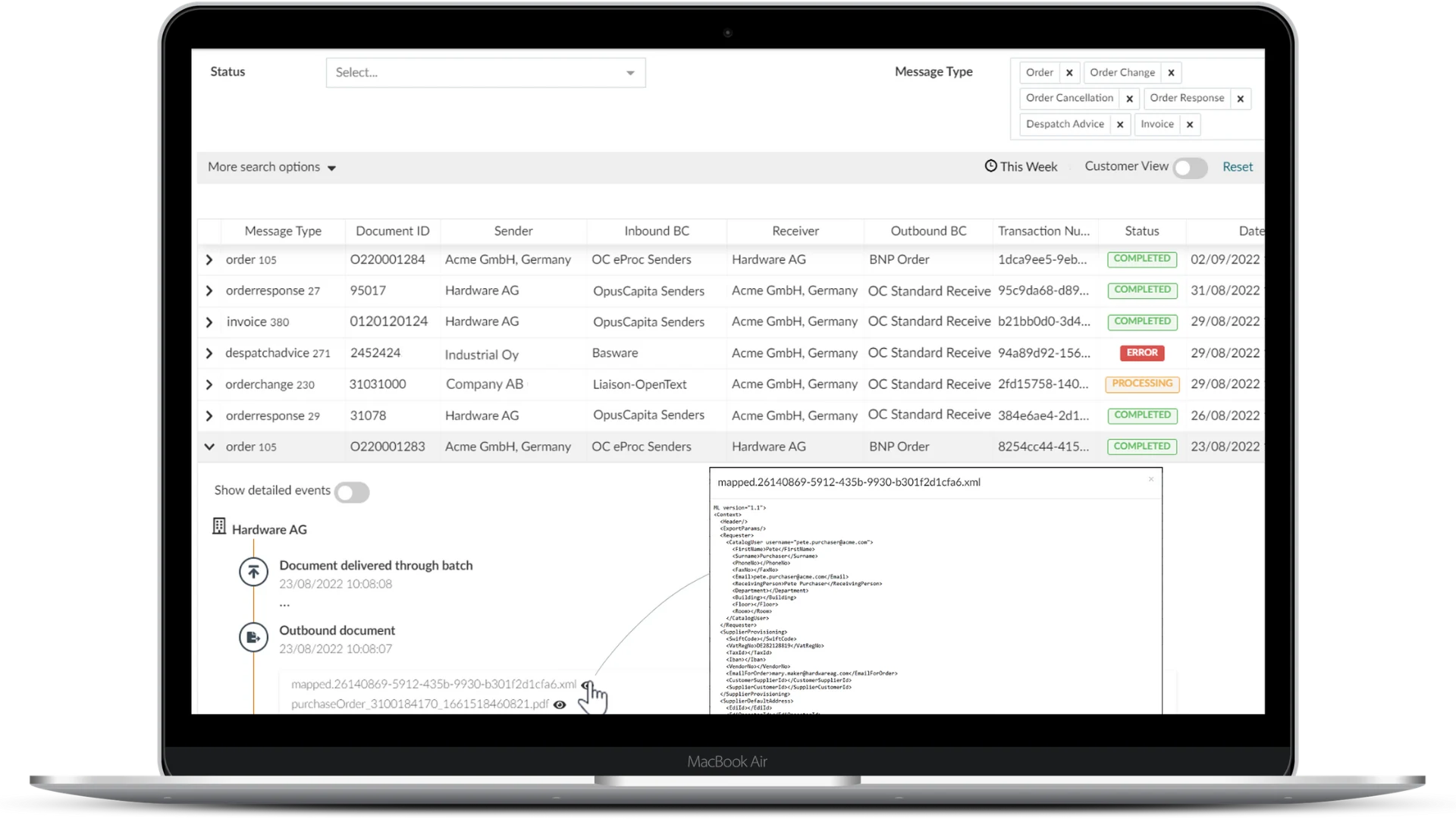
Real-time visibility to your purchase-to-pay flow
Monitor all transactions in our best-of-breed Track & Trace with ultimate, real-time visibility of all that happens in the network – from orders to invoices.
Fully digital P2P message flow
P2P messages can be exchanged via OpusCapita’s Business Network depending on how you and your suppliers choose to connect to it. Company identification is based on standards such as GLN, DUNS, VAT, or OVT.
Purchase-to-Pay messaging comes with great capabilities for different routings, typically done in a combination of direct integration (point-to-point integration) to your selected suppliers, and an open network such as Peppol. If necessary, the delivery can also be done by email, but our warmest recommendation is to go for the truly electronic formats.

All message types can be exchanged in various formats via OpusCapita’s Business Network depending on your and your suppliers’ preferences.
In full integration with your ERP and workflow system, the cloud-based Purchase-to-Pay messaging service automatically handles your supply chain document data. When sending out, for example orders, your ERP data is first transformed to our canonical (OpusCapita internal) format and then to the supplier’s preferred format for delivery. When receiving, for example order confirmations, the received format is similarly first transformed to our canonical format and then to your preferred format. This enables secure and flexible data mapping between any formats. Also master data such as product codes can be used to add extra value.
Format examples
We support different electronic message standards available on the market. For example:
- UN/Edifact
- Eancom
- Tradacoms
- XML
- UBL
- Peppol
The interface from P2P messaging to your ERP can be either a native inhouse interface or a standard-based EAI-application in between. The service uses standard data transfer protocols, such as SFTP, by your preference. In addition, the formats, routing, and other data transfer preferences such as transfer schedules are set to best suit your needs and ensure best possibilities for monitoring what was sent always reaches the recipient.
There is also a splitting possibility, which allows copying and delivering a message to two recipient systems. For example, you can receive an order to both a warehouse and the accounting system according to your pre-defined rules, in which our professional team can be of great help for you.
All messages are validated according to the general requirements of each message type, ensuring your compliance with legal and business requirements. Invalid messages are rejected and notified to the sender, whether that be you or your supplier depending on the message type.
The validation includes, for example, checking that order, despatch advice and invoice numbers are unique, dates are reasonable, party information such as GLN is known, different document types match one another, and VAT requirements are met.
Do more with validation
Possibilities go beyond just compliance:
Content validation
Validate data against specified business rules, e.g. invoice refers to PO.
Buyer-specific business rules
Specify currency conversion rate or require reason for not charging VAT.
Data enrichment
Add predefined information to selected data elements.
Value mapping
Replace original product codes with customer-specific product codes.
P2P messages can be exchanged via OpusCapita’s Business Network depending on how you and your suppliers choose to connect to it. Company identification is based on standards such as GLN, DUNS, VAT, or OVT.
Purchase-to-Pay messaging comes with great capabilities for different routings, typically done in a combination of direct integration (point-to-point integration) to your selected suppliers, and an open network such as Peppol. If necessary, the delivery can also be done by email, but our warmest recommendation is to go for the truly electronic formats.

All message types can be exchanged in various formats via OpusCapita’s Business Network depending on your and your suppliers’ preferences.
In full integration with your ERP and workflow system, the cloud-based Purchase-to-Pay messaging service automatically handles your supply chain document data. When sending out, for example orders, your ERP data is first transformed to our canonical (OpusCapita internal) format and then to the supplier’s preferred format for delivery. When receiving, for example order confirmations, the received format is similarly first transformed to our canonical format and then to your preferred format. This enables secure and flexible data mapping between any formats. Also master data such as product codes can be used to add extra value.
Format examples
We support different electronic message standards available on the market. For example:
- UN/Edifact
- Eancom
- Tradacoms
- XML
- UBL
- Peppol
The interface from P2P messaging to your ERP can be either a native inhouse interface or a standard-based EAI-application in between. The service uses standard data transfer protocols, such as SFTP, by your preference. In addition, the formats, routing, and other data transfer preferences such as transfer schedules are set to best suit your needs and ensure best possibilities for monitoring what was sent always reaches the recipient.
There is also a splitting possibility, which allows copying and delivering a message to two recipient systems. For example, you can receive an order to both a warehouse and the accounting system according to your pre-defined rules, in which our professional team can be of great help for you.
All messages are validated according to the general requirements of each message type, ensuring your compliance with legal and business requirements. Invalid messages are rejected and notified to the sender, whether that be you or your supplier depending on the message type.
The validation includes, for example, checking that order, despatch advice and invoice numbers are unique, dates are reasonable, party information such as GLN is known, different document types match one another, and VAT requirements are met.
Do more with validation
Possibilities go beyond just compliance:
Content validation
Validate data against specified business rules, e.g. invoice refers to PO.
Buyer-specific business rules
Specify currency conversion rate or require reason for not charging VAT.
Data enrichment
Add predefined information to selected data elements.
Value mapping
Replace original product codes with customer-specific product codes.
Shall we drill down to your Purchase-to-Pay potential?
Leave your contact info and we’ll be in touch straight away.
